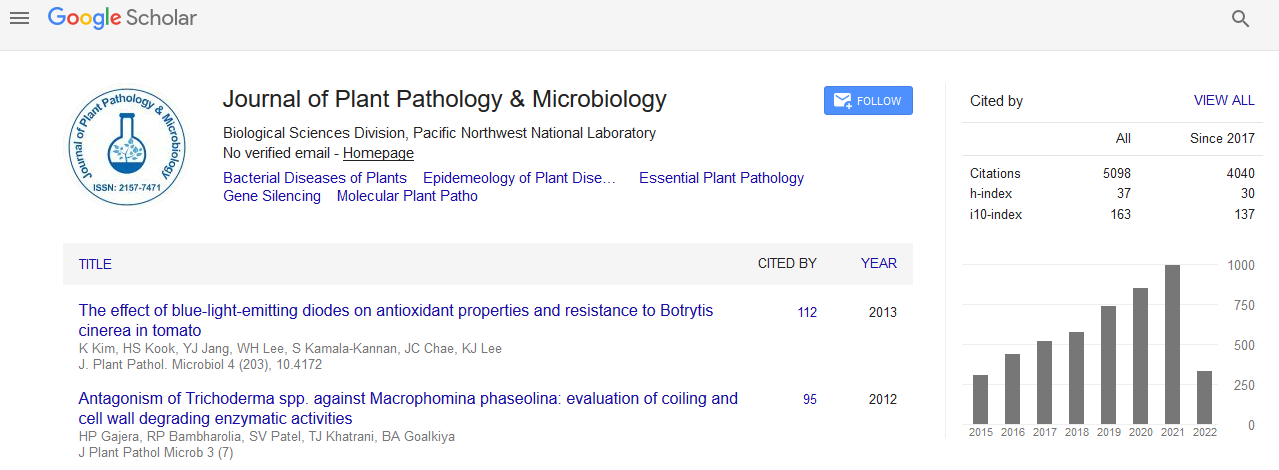PMC/PubMed Indexed Articles
Indexed In
- Open J Gate
- Genamics JournalSeek
- Academic Keys
- JournalTOCs
- CiteFactor
- Ulrich's Periodicals Directory
- Access to Global Online Research in Agriculture (AGORA)
- Electronic Journals Library
- Centre for Agriculture and Biosciences International (CABI)
- RefSeek
- Directory of Research Journal Indexing (DRJI)
- Hamdard University
- EBSCO A-Z
- OCLC- WorldCat
- Scholarsteer
- SWB online catalog
- Virtual Library of Biology (vifabio)
- Publons
- Geneva Foundation for Medical Education and Research
- Euro Pub
- Google Scholar
Useful Links
Share This Page
Journal Flyer

Open Access Journals
- Agri and Aquaculture
- Biochemistry
- Bioinformatics & Systems Biology
- Business & Management
- Chemistry
- Clinical Sciences
- Engineering
- Food & Nutrition
- General Science
- Genetics & Molecular Biology
- Immunology & Microbiology
- Medical Sciences
- Neuroscience & Psychology
- Nursing & Health Care
- Pharmaceutical Sciences
Water deficit modify phenotypes of transgenic maize overexpressing ABP9 in the field
International Conference on Plant Physiology & Pathology
June 09-10, 2016 Dallas, USA
Javed Hussain Umrani, Zhao Jun, Zhong Na, Mumtaz Ali Sahito, Ibtessam Tahir Ansari, Sadaruddin Chachar1, Qammardin Chachar, Muhammad Ibrahim Keerio and Muhamad Ashraf Mirjat
Chinese Academy of Agricultural Sciences, China
Sindh Agriculture University, Pakistan
Posters & Accepted Abstracts: J Plant Pathol Microbiol
Abstract:
Drought and high temperature are major environmental factors that severely limit plant productivity worldwide. Agricultural production faces serious threats from frequent extreme weather conditions. Maize (Zea mays L.) is a major crop greatly affected by drought and high temperature in the China and worldwide. Previously, expression of ABP9 in transgenic Arabidopsis leads to enhanced tolerance to temperature and oxidative stresses. It is proved that the expression of ABP9 gene maize on the basis of different superior phenotypes for drought tolerance is essential and prerequisite for grain development. In this research, we evaluated ten events of [Pubi-ABP9 (06 construct)] of transgenic maize for drought tolerance at vegetative & reproductive stages under field conditions and identified several phenotypes showed high tolerance to drought. Tolerant construct of [Pubi-ABP9.1 (06 construct)] (611, 616 & 617) at vegetative stage and drought applied during reproductive stage (617& 618) events were able to maintain comparatively adequate phenotypes chlorophyll fluorescence, NDVI, reduced ASI & enough grain yield was recorded compared to the non-transgenic controls and the use of such resources to produce transgenic maize are able to alleviate the negative impacts of drought stresses on the growth, development and grain yield of maize.
Biography :
Javed Hussain Umrani is working as a PhD scholar at the Biotechnology Research Institute (BRI), Chinese Academy of Agricultural Sciences, Beijing, China. His research experience includes various programs, contributions and participation in different countries for diverse fields of study. His research interests as a Researcher reflect him in wide range of publications in various national and international journals.
Email: javed.umrani@gmail.com


